Netanyahu charges: Is Israel PM in more trouble now than ever before?
- Published
Middle East correspondent Tom Bateman explains the allegations against Benjamin Netanyahu
Benjamin Netanyahu - currently seeking to be elected for a fifth term as Israel's prime minister - has known many challenging times in politics, but none quite like this.
The attorney general has confirmed that he plans to bring serious criminal charges against him - bribery, fraud and breach of trust - pending a hearing. These could carry jail terms if he is convicted.
He stands accused of doing favours for wealthy friends in return for a "supply line" of pink champagne and expensive cigars and for getting positive media coverage.
On top of that, he is facing his most formidable political rival in years: a former chief of the armed forces, Benny Gantz, who leads the new centrist Blue and White party and has promised clean governance. It is currently polling higher than the prime minister's Likud party.
In a televised statement on Thursday night, Mr Netanyahu came out on the counter-attack.
He strongly denied any wrongdoing, accusing the attorney general - whom he appointed - of capitulating to the left and saying he was the victim of "an unprecedented witch hunt" to topple his right-wing government.
'Battle of survival'
"He's very much under pressure, he's very much acting impulsively," says Anshel Pfeffer, a Haaretz journalist who wrote a recent biography of the prime minister.
"The more these indictments create problems for him and the more the challenges on the political scene with a new party, like the Gantz party - and with rivals within Likud perhaps starting to speak out against him - we'll see less the statesman and more the local politician fighting a very dirty battle of survival."
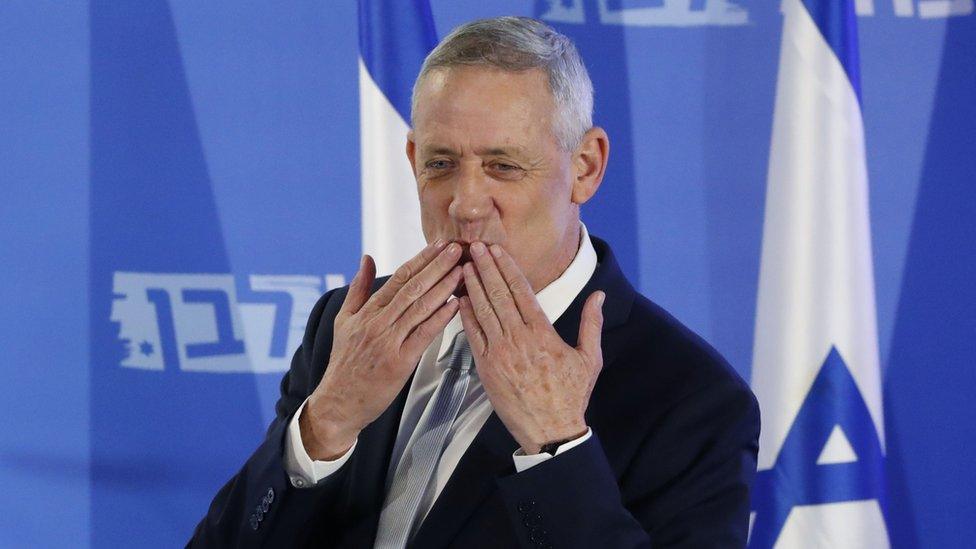
Mr Gantz's new centrist party is polling higher than Mr Netanyahu's Likud
Mr Netanyahu - who flew back early from a meeting with President Vladimir Putin in Moscow as the attorney general's decision was about to be announced - misses no chance to stress his undoubted achievements on the world stage.
Recently, huge billboards were put up in Tel Aviv and Jerusalem showing the prime minister with President Trump, beaming and shaking hands. "Netanyahu: a different league" read the slogan.
The prime minister aims to show how his close relations with this White House have helped deliver a tough approach on Iran and the Palestinians as well as US recognition of Jerusalem as Israel's capital.
This angered Palestinians who claim the east of the city as the capital of their future state.

"Netanyahu: a different league", reads the slogan
Likud members firmly back their leader.
"Currently, there's no-one that's nearly as strong or as intelligent or as experienced as Netanyahu is," Zohar Tal, a candidate, told me at a Likud primary event last month.
"Netanyahu, I think he's the best prime minister we had here," added Iris, a grassroots supporter. "Not just for security but also for the economic situation."
After the attorney general's decision was announced, a majority of the prime minister's existing coalition partners issued statements of support.
Recent polls continue to indicate that right-wing and religious parties will still command an overall majority of Knesset seats after the 9 April vote.
'Uncharted waters'
Meanwhile, Mr Netanyahu's main opponents are demanding that he step down, pledging they would not join any future government that he headed.
"People of Israel, sitting with Netanyahu in the same government cannot happen. I call on you Netanyahu, to show responsibility and to resign from your position," Mr Gantz said in his TV statement late on Thursday.
The Labour party sent voice messages to hundreds of thousands of Israelis with a recording of Mr Netanyahu from 2009. As head of the opposition, he called on then-Prime Minister Ehud Olmert, to leave office as he faced corruption investigations.
Mr Olmert did step aside. He was later prosecuted for taking bribes and spent over a year and a half in prison.
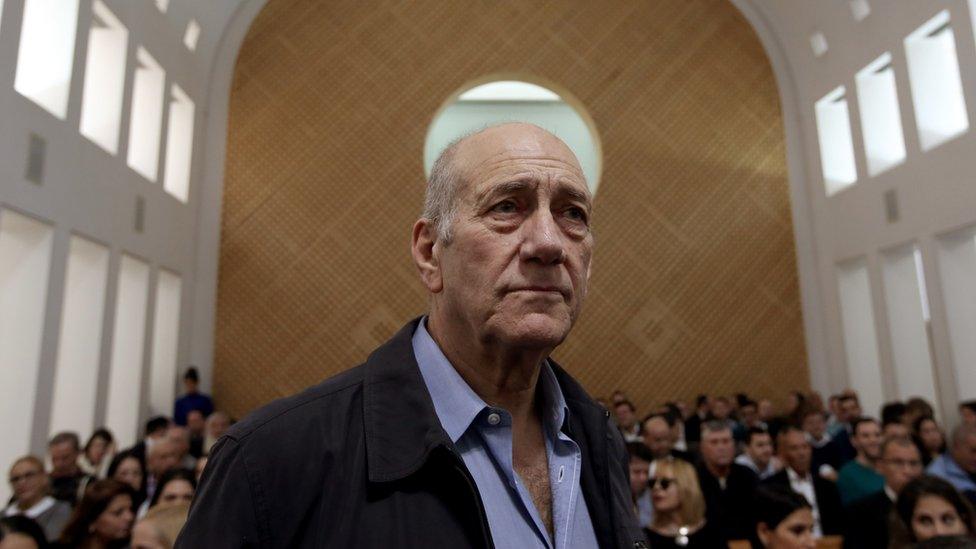
Ex-Prime Minister Ehud Olmert was jailed in 2016 after being convicted of fraud
This is the first time that a serving prime minister has been put on official notice of planned prosecution. While there are currently no legal barriers to him staying on, it creates an uncertain situation.
"We're in uncharted waters. We don't know how this will take shape," says Guy Lurie, a legal expert at the Israel Democracy Institute.
Mr Netanyahu is presumed innocent unless proven otherwise. However, if he is re-elected, indicted and then refuses to resign, it is thought likely that the Supreme Court would rule on his position.
"It's really difficult to see how he could conduct himself in court facing serious - potentially multiple - corruption charges and continue to conduct government," Mr Lurie notes.
The prime minister is calling the case against him a "house of cards" predicting that it "will collapse soon".
However, many Israeli commentators think he has already been tainted by the accusations against him suggesting a lavish lifestyle, conflicts of interest and abuse of authority.
In his lengthy report delivered to the prime minister's lawyers, the attorney general Avichai Mandelblit wrote: "You have hurt the image of public service and public faith in it."
- Published22 May 2020
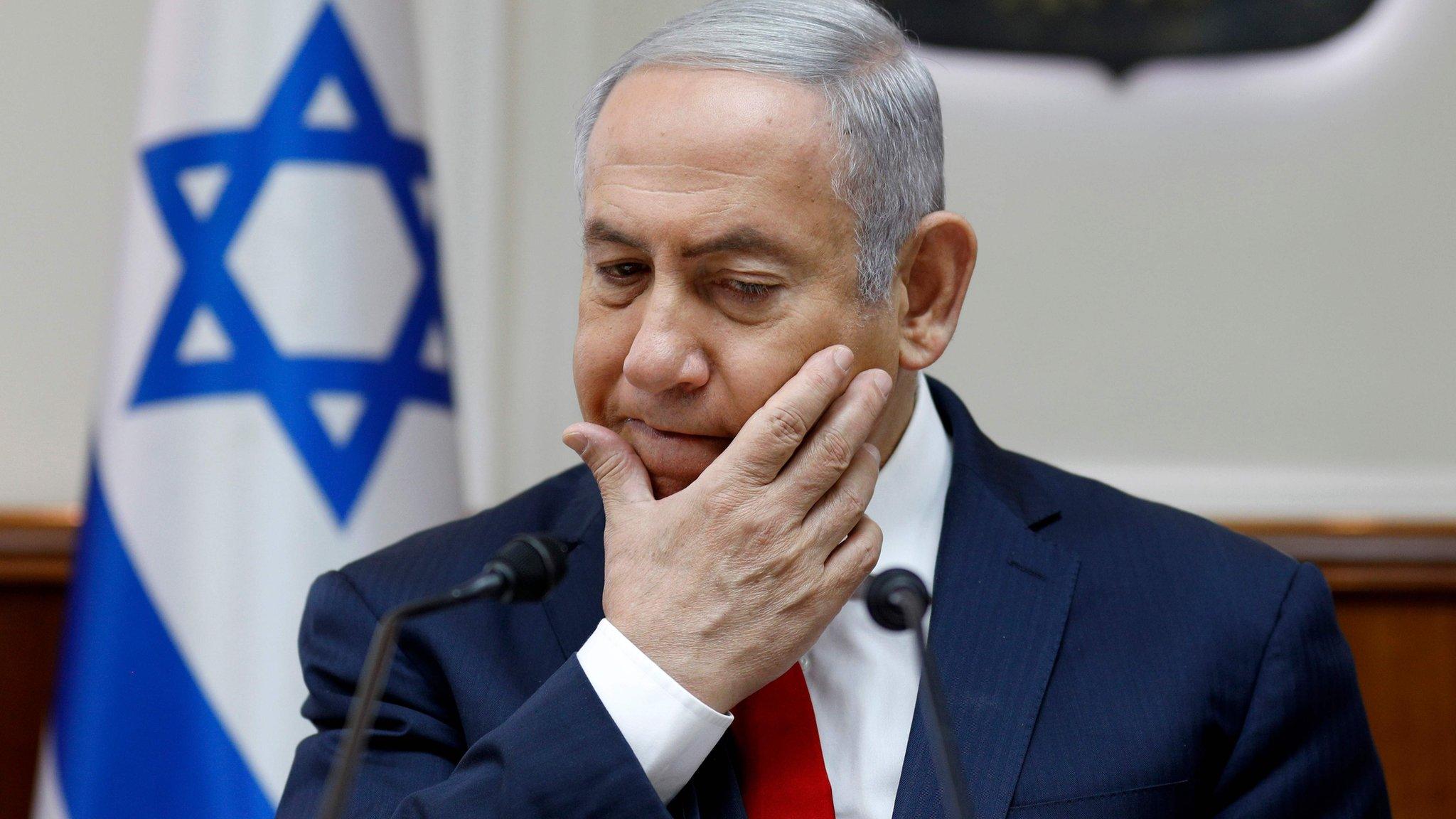
- Published28 February 2019
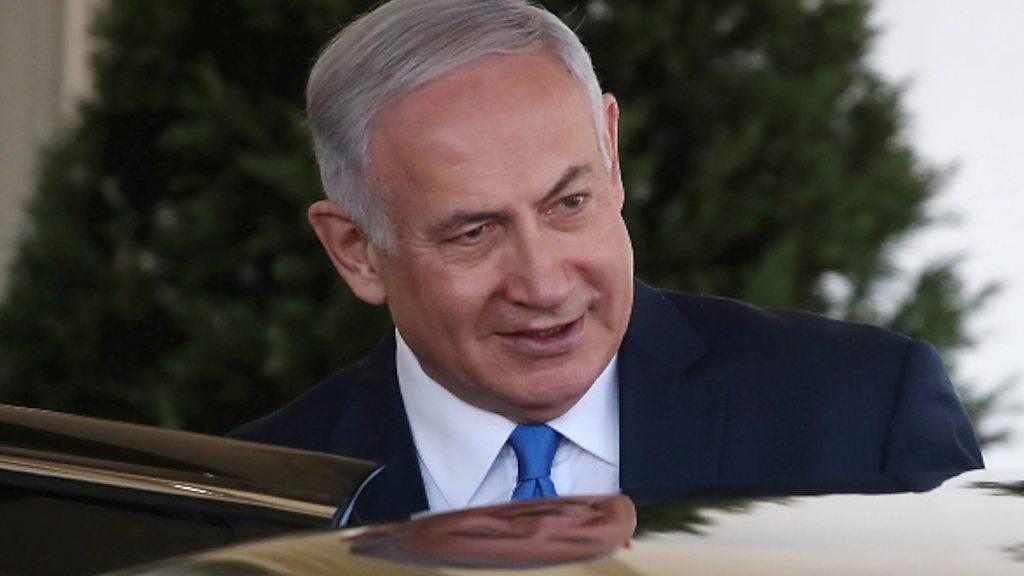
- Published13 February 2018
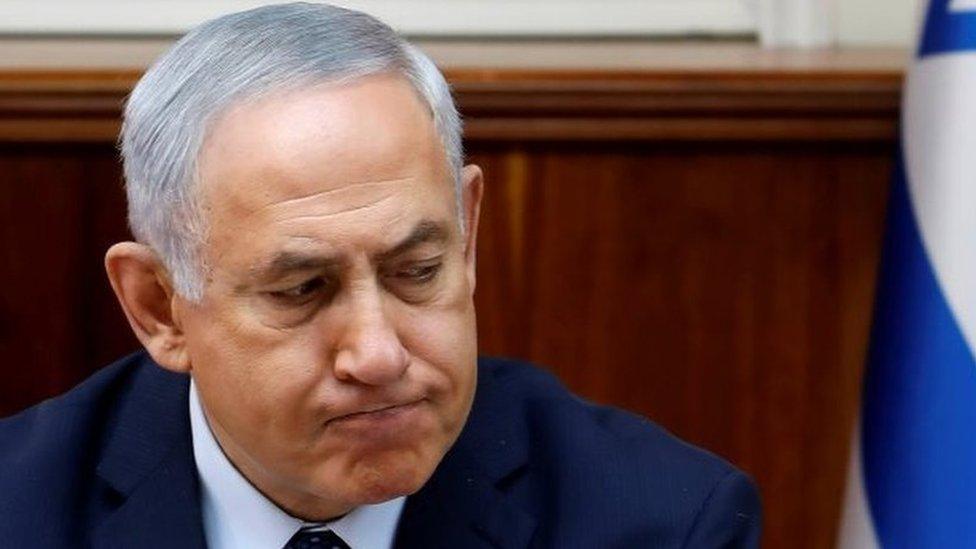
- Published21 November 2024
